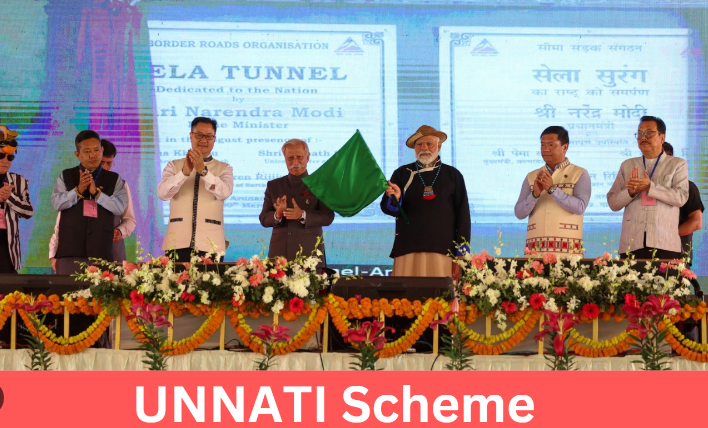Context:
Recently, the Union Cabinet approved Uttar Poorva Transformative Industrialization Scheme, 2024 (UNNATI – 2024) for a period of 10 years.
About UNNATI
Objective: It’s aimed to promote industrial growth and job creation in the North Eastern Region (NER) states.
Timeline: UNNATI is a long-term initiative with a ten-year operational period, effective from the notification date until 2034. An additional eight years are allocated to fulfill committed liabilities.

Key Features:
- This will be a Central Sector Scheme under ministry of Commerce and Industry.
- Commencement of Operations: Eligible businesses must begin production or operations within 4 years of receiving registration under UNNATI.
- Zonal Classification: Districts are categorized as either Zone A (industrially advanced) or Zone B (industrially backward) to ensure targeted allocation of resources.
- Environmentally Conscious Approach: Maintains a balance between industrial growth and the unaltered environment of the NER, certain industries are kept in the follow:
Positive list includes industries like renewable energy and EV charging stations.
Negative list includes sectors such as cement and plastic to protect the environment. - Fund Distribution: 60% of the outlay of Part A has been earmarked to 8 NE states and 40% on First-In-First-Out (FIFO) basis.
- Eligibility: Both new and expanding industrial units can benefit from UNNATI’s incentive programs.
- Implementing Agency: The Department for Promotion of Industry and Internal Trade (DPIIT) by following committees.
Steering Committee (National Level) headed by Secretary, DPIIT (SIIT).
State Level Committee headed by Chief Secretary of the respective state
Secretary Level Committee (State Level) headed by Senior Secretary of the state (Industries)
Focus Areas:
UNNATI targets the socio-economic development of the region by:
- Attracting new industrial units
- Encouraging expansion of existing businesses
- Generating employment opportunities
Incentive Structure:
The scheme offers a range of financial benefits to incentivize industrial activity:
- Capital Investment Incentives: Financial aid to reduce the initial investment burden for new or expanding businesses.
- Central Capital Interest Subvention: Partial subsidy on interest accrued on loans taken for capital investment.
- Manufacturing and Services Linked Incentives: Additional support for businesses engaged in manufacturing and service sectors within the NER.

